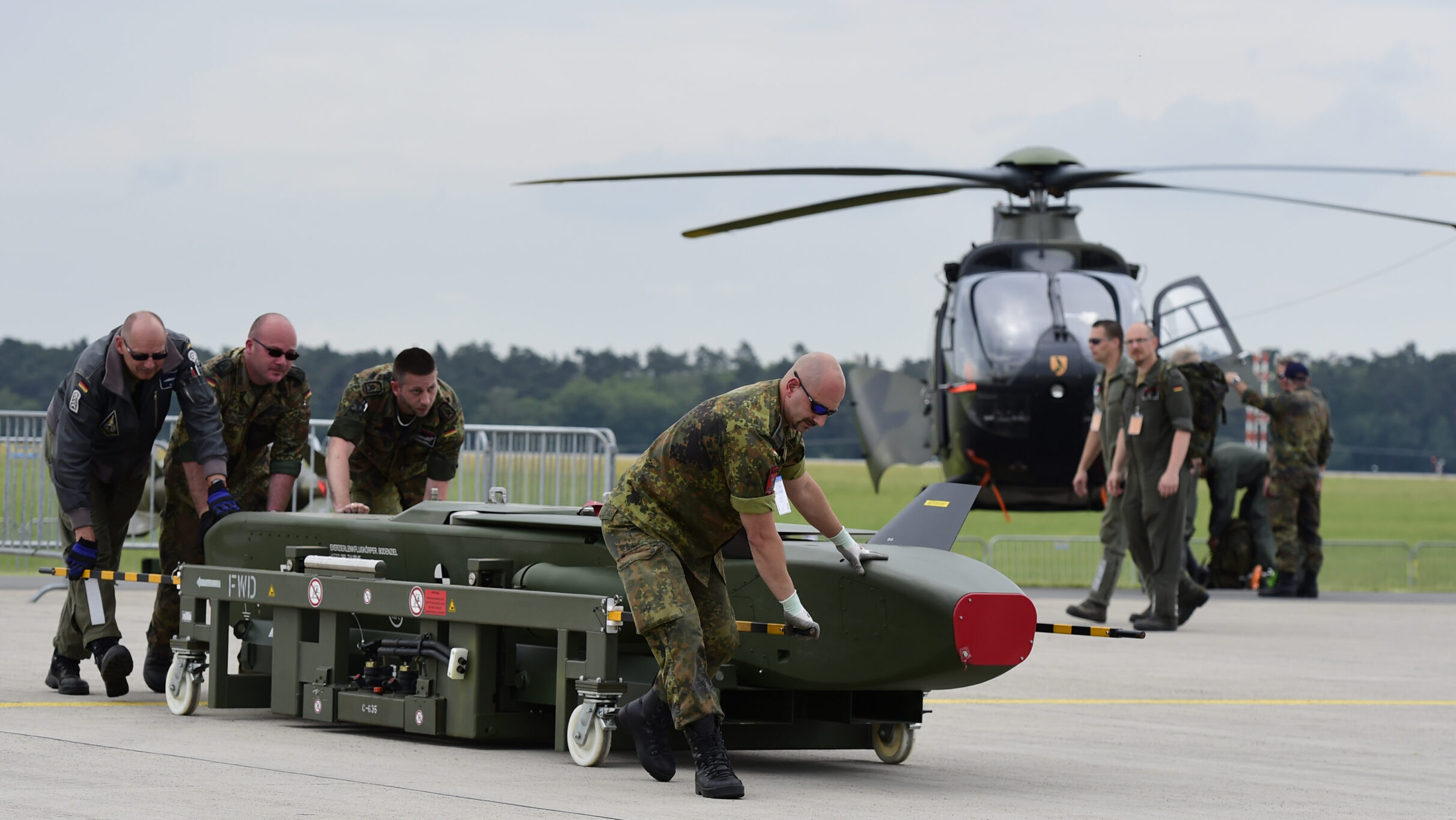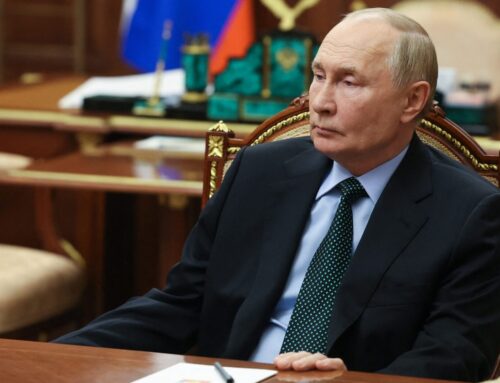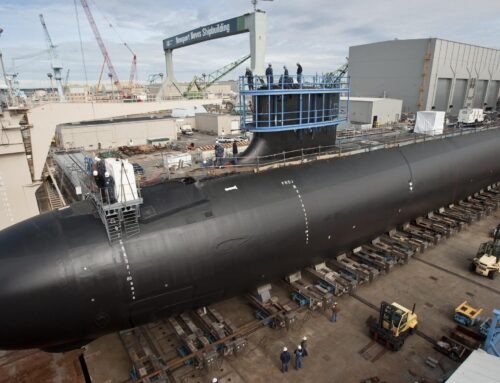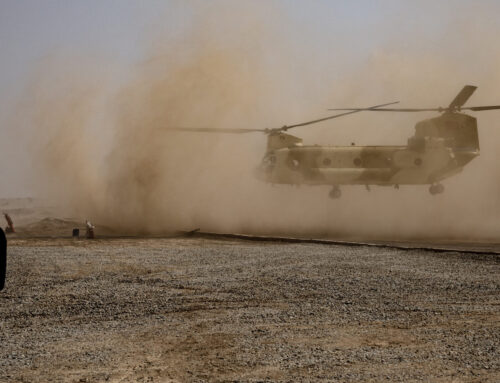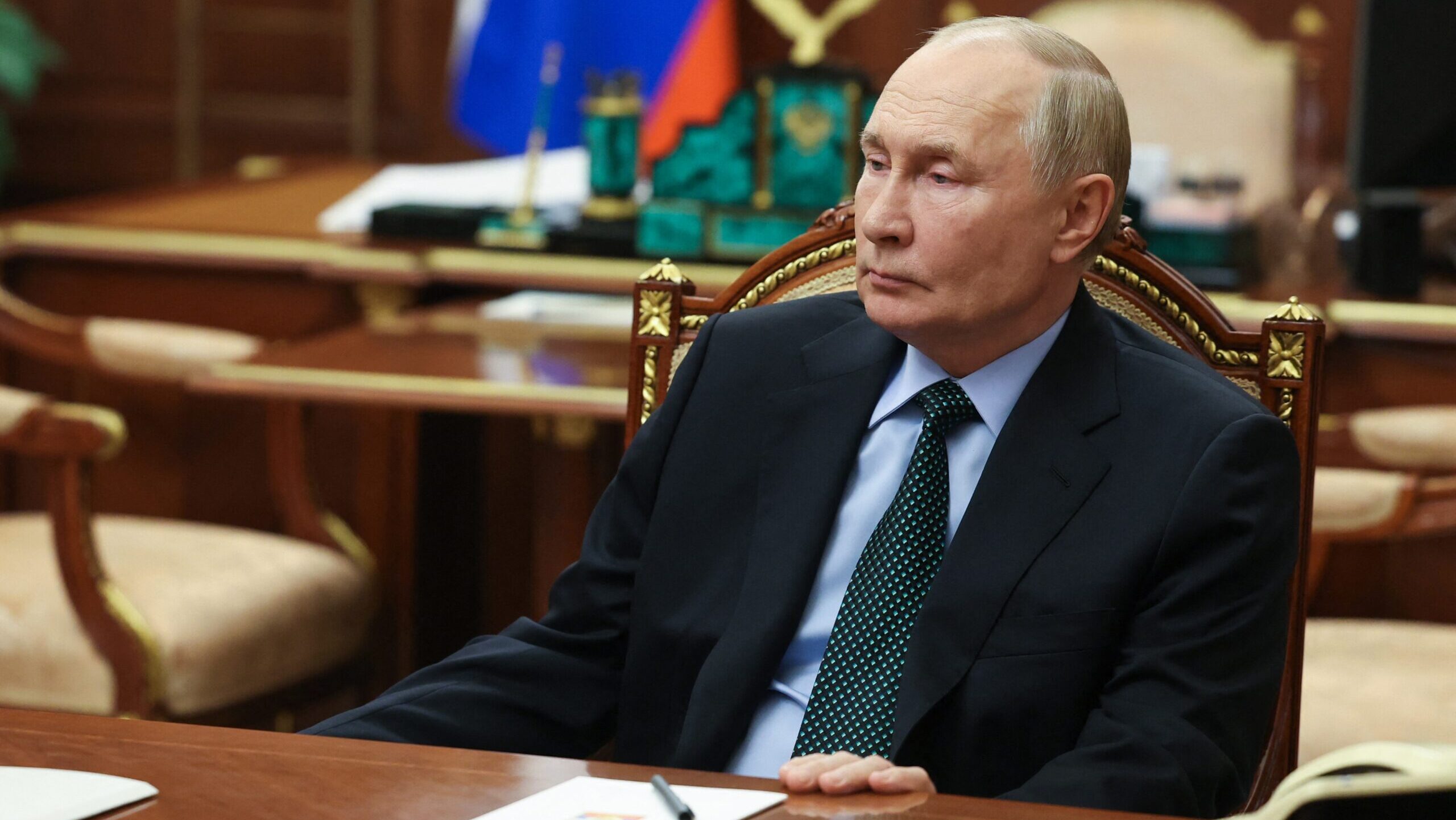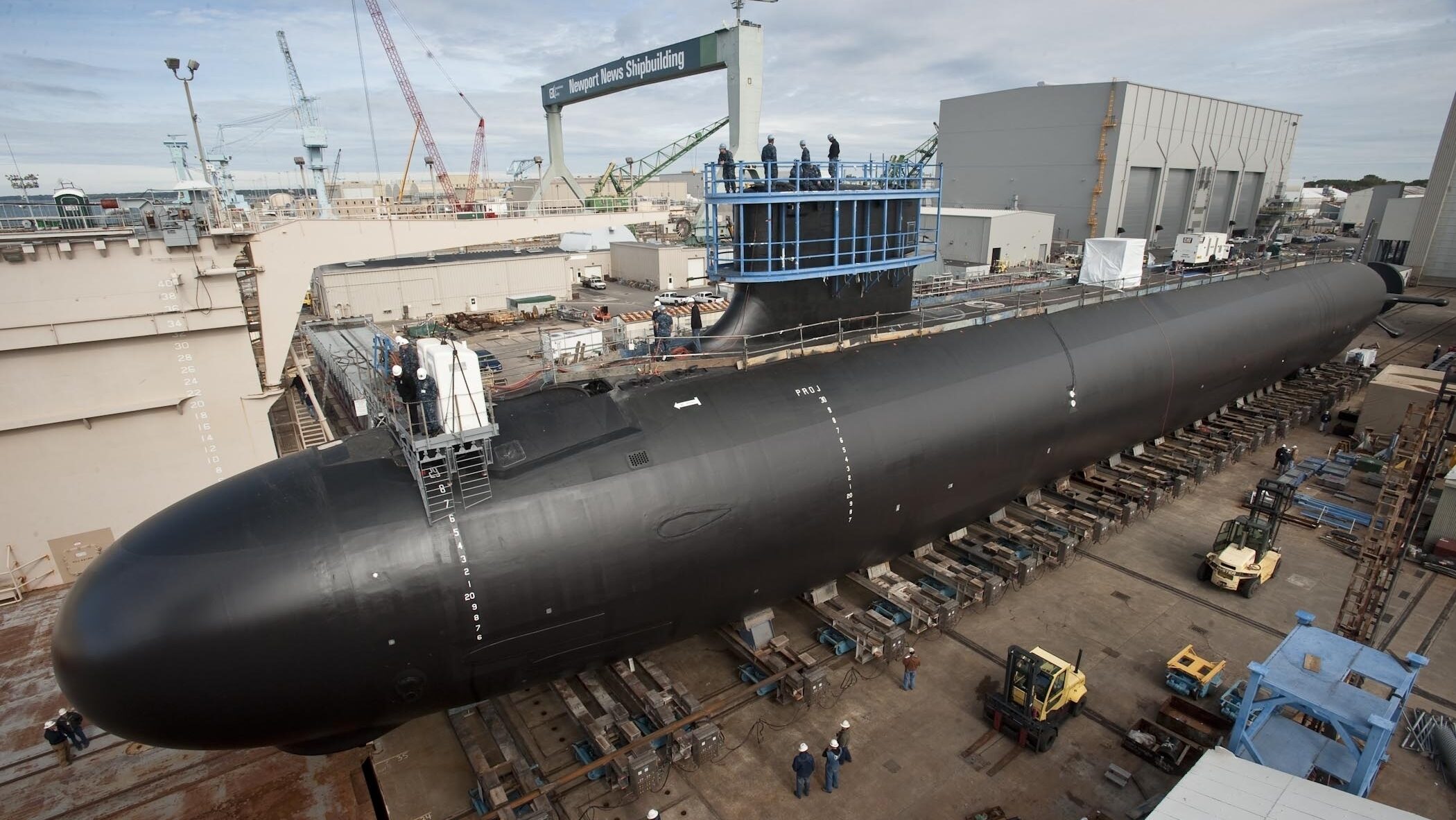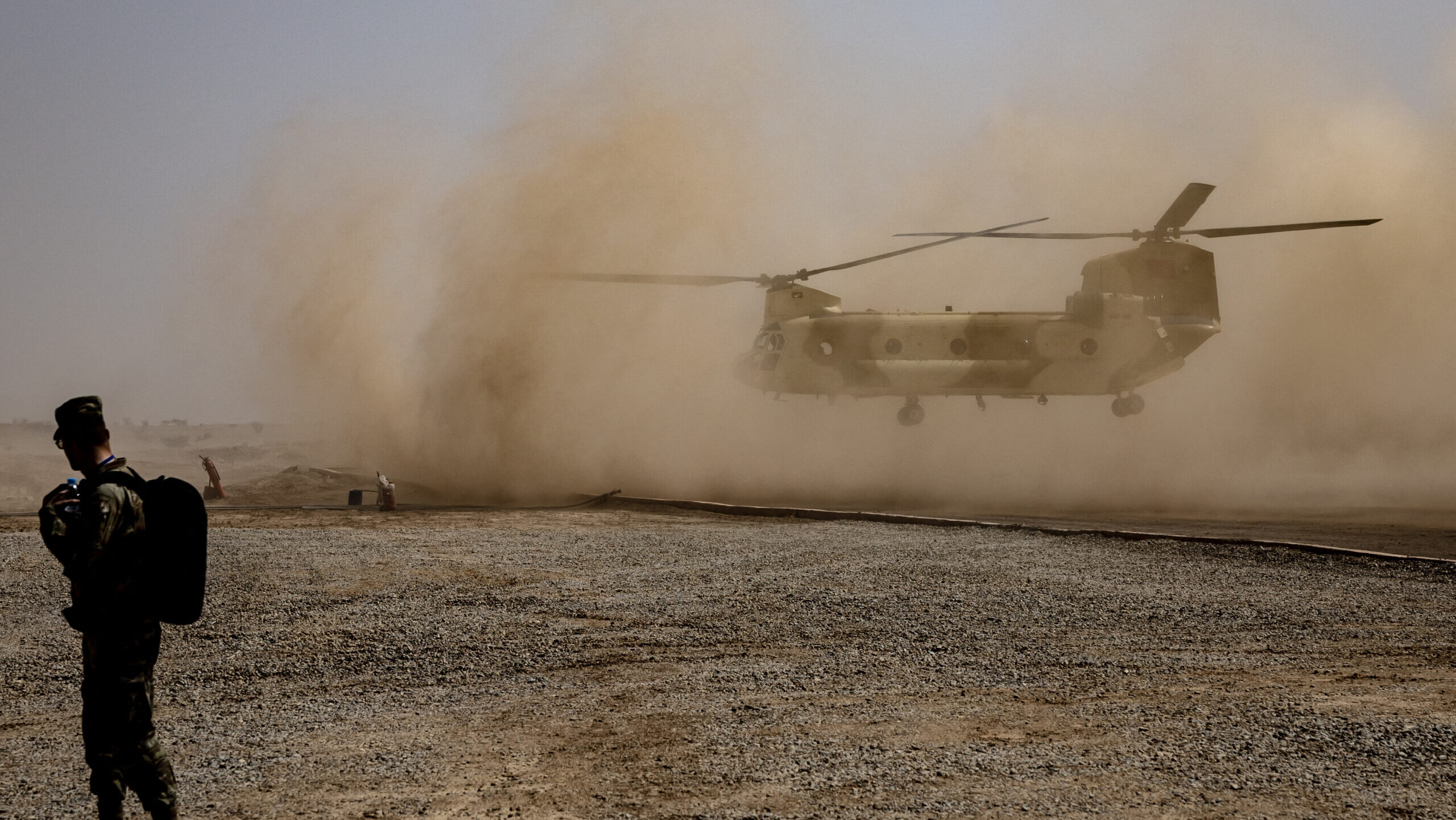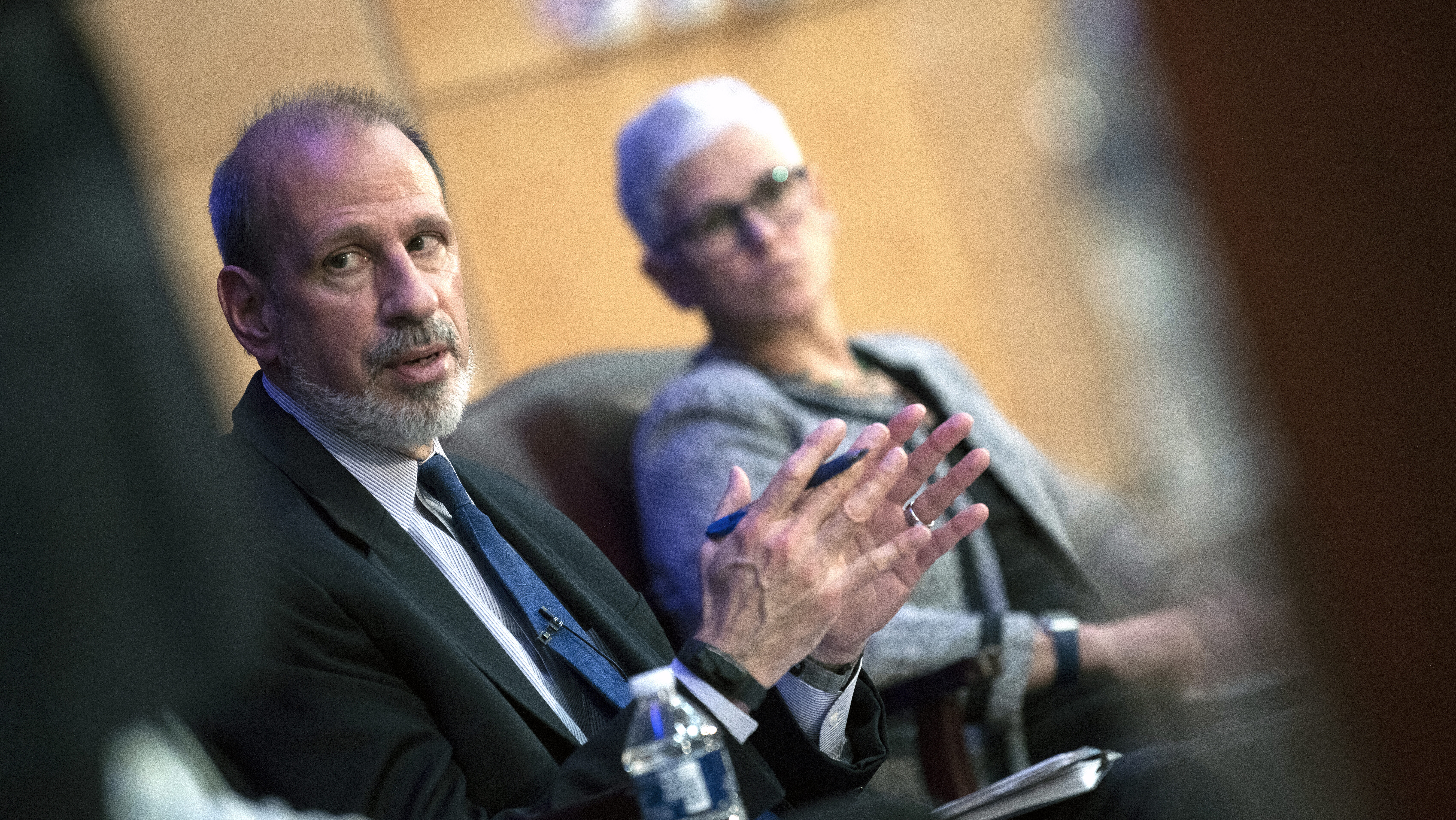Members of the German Armed Forces Bundeswehr carry a “Taurus” weapon system during the International Aerospace Exhibition (ILA) in Schoenefeld on May 30, 2016. (TOBIAS SCHWARZ/AFP via Getty Images)
BELFAST — In the wake of the US government approving Ukraine to use Army Tactical Missile System (ATACMS) surface-to-surface artillery weapons inside Russia, German Chancellor Olaf Scholz has refused to bow to new calls to supply Kyiv with desperately needed Taurus long-range precision missiles.
The Swedish-German ballistic missile offers a range in excess of 500 kilometers and is designed to hit hardened targets like bunkers, bridges, and command and control facilities. Germany completed an order of 600 units for integration on Tornado IDS (Interdiction/Strike) fighter jets in 2010.
Scholz publicly justified the decision not to make a Taurus approval on Monday at the G20 summit in Rio de Janeiro, saying that he did not want to be held “responsible” for the weapons “targeting,” — a reference to his long stated redline that Taurus should not draw Germany into the war. Ukraine has reportedly since fired ATACMS to strike into Russia for the first time. Ukrainian officials said an initial salvo targeted an ammunition depot in the Bryansk region of southwestern Russia, according to the New York Times.
Analysts Breaking Defense spoke with suggested that Scholz’s position on Taurus effectively amounts to an attempt to protect his political career and argued that he has limited clout over Russia more broadly.
If he was to change course, it would be “deeply unpopular” with the left-leaning faction of the Social Democratic Party, to the extent that Scholz could, “say goodbye” to any chance of the SDP considering him for the chancellorship again, ahead of a new general election planned for February, according to Fabian Hoffmann, a missile expert at the University of Oslo in Norway.
The election was prompted by the Free Democratic Party leaving the coalition government, which is also made up of the SDP and the Greens.
Speaking before Scholz’s G20 press conference, Matthew Savill, director of military sciences at the Royal United Services Institute, a British defense think tank, said, “If Scholz could be moved, I suspect he would have done so by now — he was extremely negative about Taurus over the weekend, and although the Russian strikes almost immediately after his call with Putin show how little influence he has, it doesn’t look likely that he would respond by changing policy now.”
Even if approved, Taurus would face problems reaching the frontline in Ukraine in a timely fashion.
In February, a conversation about potential deliveries to Ukraine by German Air Force officials was intercepted by Russia and shared online by state broadcaster RT. The leak included the suggestion that Taurus operations could only begin eight months after political approval, based on training and mounts needed to integrate it on fighter jets.
“Taurus would require a new round of integration and validation work before they could be launched by Ukrainian aircraft (most likely the UAF’s relatively small number of Su-24 strike planes, which already carry Storm Shadow),” said Jacob Parakilas, research leader for defense strategy, policy and capabilities at RAND Europe. “It might be easier to integrate onto the UAF’s newly-arrived F-16s, which have NATO-standard mounts and connectors, although Taurus is not currently certified for F-16 carriage and launch either — so it would be a matter of months before they could be used in either case.”
The UK and France are expected to follow the lead of the US on ATACMS and approve Ukraine to launch Storm Shadow and SCALP long-range cruise missiles inside Russian territory.
French newspaper Le Figaro reported that approvals by Paris and London had been given but later edited the story to clarify that debates are still ongoing.
A spokesperson for the French President’s Office declined to comment on specific weapon systems, deferring to an address by French President Emmanuel Macron during a state visit to Germany in May where he stated that, “we must allow them [Ukraine] to neutralise the military sites from which the missiles are fired and, basically, the military sites from which Ukraine is attacked, but we must not allow them to hit other targets in Russia, obviously civilian capabilities or other military targets.”
Macron added at that time, “When Ukraine is attacked from identified targets in Russia, well, I think we have to be able to allow them to do that if we really want to retain our objective. And I think I can say that, factually, we are not escalating by doing this, since it is Russia that is organising itself in this way.”
In the case of the UK and Storm Shadow, the Ministry of Defence declined to comment on whether an approval for Ukraine had been made.
Earlier this week, UK Defence Secretary John Healey told another lawmaker that commenting on the issue “risks operational security and the only person that benefits from public debate is President Putin,” according to the BBC.
From a “Ukrainian perspective it would be preferable for this [approvals on Storm Shadow and SCALP] to take place privately and not be announced until after first use, though the Russians already have some advance warning,” said Savill.


